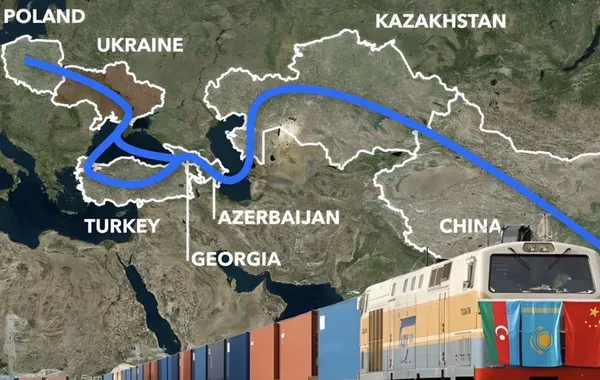
Photo: AZERTAC
By Tural Heybatov
Today Marks 102 Years Since the Birth of Azerbaijan’s National Leader Heydar Aliyev.
In July 1969, Heydar Aliyev was elected First Secretary of the Central Committee of the Communist Party of Azerbaijan. In 1982, he was promoted to Moscow, where he became a member of the Politburo of the Communist Party of the Soviet Union and served as Deputy Chairman of the Soviet government. In 1987, he resigned-or more accurately, was forced to step down-as he became a target of the Soviet leadership, which viewed him as an obstacle to their destructive plans against Azerbaijan.
His departure gave free rein to forces within the Soviet establishment and propaganda apparatus that sought to weaken Azerbaijan. Within a year, the Karabakh conflict erupted. In January 1990, Soviet troops invaded Baku, spilling the blood of innocent civilians. Separatist movements gained momentum, escalating into full-scale war. Many experts, both in Azerbaijan and abroad, agree that these events might have been prevented had Heydar Aliyev remained in power in Baku or in Moscow.
During his years leading Soviet Azerbaijan, Heydar Aliyev transformed the republic into one of the most advanced regions of the Soviet Union. Under his leadership, Azerbaijan shed its role as a mere raw materials appendage of the empire. It would not be an exaggeration to say that he laid the groundwork for the country’s future prosperity. Azerbaijan’s industry and agriculture flourished, science and education advanced, and cultural life thrived.
By the time Aliyev was called to Moscow, Azerbaijan boasted over 200 industrial enterprises and had laid the foundation for a major oil refining industry. Thanks to his efforts, Baku became home to the Soviet Union’s only factories producing household air conditioners and deepwater platform bases. These platforms played a critical role in advancing Azerbaijan’s oil and gas industry during the Soviet era and beyond.
Heydar Aliyev also succeeded in establishing Azerbaijan’s first military school, later named after Jafargulu Khan Nakhchivanski. It was here that the first generation of national military officers was trained, laying the foundation for Azerbaijan’s future armed forces.
After the tragic events of January 20, 1990, Heydar Aliyev returned to Azerbaijan, unable to remain on the sidelines while his homeland faced such peril. He was elected to the Supreme Soviet of the Azerbaijan SSR and later became Chairman of the Supreme Assembly of the Nakhchivan Autonomous Republic. Under his leadership, Nakhchivan was the first to restore the national symbols of Azerbaijan’s independence, even before the central authorities in Baku acted.
On June 15, 1993-now commemorated as National Salvation Day-Heydar Aliyev returned to Baku at the urgent call of the people. Azerbaijan was on the brink of collapse, torn apart by civil strife and military defeat. Aliyev assumed leadership of the parliament, and on October 3, 1993, he was overwhelmingly elected President of Azerbaijan.
His leadership halted the country’s disintegration. He prevented civil war, stopped the advance of Armenian occupying forces, and led the successful Horadiz military operation. As a master strategist and diplomat, Aliyev secured a ceasefire with Armenia. This pause in the Karabakh conflict allowed Azerbaijan to recover, strengthen its statehood, and lay the groundwork for future development.
Aliyev also brought political stability to the country-an essential prerequisite for overcoming the crisis. Under his leadership, Azerbaijan signed the “Contract of the Century,” launched major energy projects, rebuilt its international reputation, and emerged as a respected player on the global stage. His personal authority and diplomatic skill played a decisive role in these achievements.
Even in the 1990s, Heydar Aliyev outlined a clear roadmap for Azerbaijan’s development, laying the cornerstone of what has become a remarkable national success story.
Heydar Aliyev believed deeply in the Azerbaijani people, and they, in turn, placed their trust in him. He was a statesman of the highest order, a central figure in regional politics, and a leader who commanded immense respect worldwide. His lifelong dream was to see Azerbaijan’s territorial integrity restored-a dream realized under the leadership of his successor, President Ilham Aliyev. Under Ilham Aliyev’s command, Azerbaijan achieved what few nations have: to emerge victorious and reclaim its lands, earning the proud title of a winning nation.
In his inaugural address in 1998, Heydar Aliyev declared:
"We want Azerbaijan to enter the 21st century as a strong, independent state. We seek to build a better life for future generations. Azerbaijan will develop as a free and democratic country and will play its historic role at the crossroads of Europe and Asia."
Heydar Aliyev was a leader who could see the future. He was a statesman who looked beyond the immediate challenges of his time and envisioned a strong, independent, and prosperous Azerbaijan-capable of standing tall on the global stage. His foresight allowed him to lay the political, economic, and social foundations that have shaped the modern Azerbaijani state. The stability he restored, the strategic partnerships he forged, and the national spirit he revived continue to guide Azerbaijan today.
Azerbaijan’s achievements in recent decades-from energy diplomacy and economic modernization to military victories and growing international influence-are a testament to the clarity of his vision and the strength of the institutions he built. His belief in the power of unity, sovereignty, and national pride has become the cornerstone of Azerbaijan’s statehood. More than a political leader, Heydar Aliyev was the architect of the nation’s modern destiny-a leader whose ideas continue to live on in every achievement of independent Azerbaijan.
The Azerbaijan we see today-a confident, respected, and forward-looking nation-is the realization of the future Heydar Aliyev once envisioned. His legacy not only lives on in history but continues to shape the country’s journey toward an even brighter future.
Share on social media
